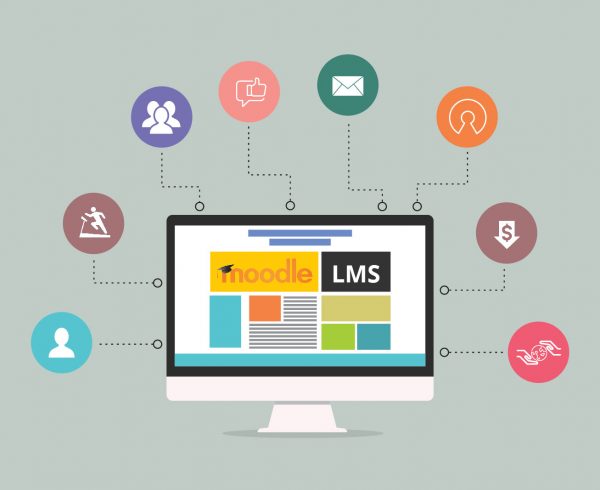The eLearning industry has evolved so much over the last few years that it has completely revolutionized the approach to learning and how designers go about making it simple and interesting for learners.
Table of Contents:
– Instructional Design
– Learning Experience Design
– Differences Between ID & LXD
As the learning industry evolves, the role of the instructional design concept has evolved too. Learners today respond better to experiences and learn from them, making it essential that the eLearning designers go beyond the usual training sessions and create meaningful experiences for the learners.
Know More: Top 5 Instructional Design Frameworks for Higher Education
This is where the concepts of instructional design (ID) and learning experience design (LXD) truly come into the picture.
In this blog, we’re going to discuss the concepts of ID and LXD in more detail and how the two differ from each other.
Instructional Design:
Instructional Design or ID refers to the practice of designing courses in a way that enhances positive outcomes in learners, i.e. skills acquisition, knowledge retention, course completion rates, and more. It is primarily based on three psychological principles of learning including –
- Behavioral
- Cognitive
- Constructivist
To be able to create a solid framework for delivering these principles, the learning materials must have –
1. Updated and relevant content
2. Ways to guide the learner in practice
3. Offer tools for independent practice by the learner
The concept of ID can be essentially applied to anything that involves learner improvement. As a learning expert, an instructional designer can use their knowledge of the various principles of learning and instruction to find the best and optimal method of instruction.
Know More: LMS or Learning Experience Platform (LXP) – What’s Best for your Training Needs
Typically, an instructional design approach involves the following steps –
- Designing robust instructional materials and courses that are best suited for digital delivery
- Effectively managing the efforts of IT, faculty, administration, and other instructional designers to achieve better student learning
- Training of faculty to leverage technological tools and implement pedagogy effectively
- Offering timely support to faculty whenever they are facing any kind of technical or instructional challenge
One of the key benefits of instructional design methodology is that it is cost-effective. Additionally, it ensures that students learn efficiently by delivering high-quality content and other learning materials that take into account the specific needs of students.
Overall, instructional design (ID) is a powerful tool that is not just for instructional designers. It is an approach that can help multiple stakeholders, including trainers, eLearning developers, and educators, to create effective and efficient courses for learners of all ages.
Learning Experience Design:
LXD refers to the approach of developing online learning experiences, including programs and courses, in alignment with user interface design and best practices in online pedagogy.
Instead of solely focusing on content, it involves taking a holistic approach to the students’ learning experience.
Know More: Learning Experience Design (LXD): An Overview and Best Practices
LXD methodology aims to ensure that the learners get the best learning experience, and the eLearning course effectively achieves its key objective of enhancing the knowledge and skill-sets of learners.
Among the key benefits of using the LXD approach for higher education students include –
- It leverages the experience and knowledge of the learners wherever possible
- LXD helps to link educational material to real-world situations that are already understood by learners, to bring concepts to life
- Offers immersive, real-world simulations/experiences to learners
- LXD practices help ensure that students’ time and money are well spent on effective and enjoyable learning experiences
Differences Between ID & LXD:
Here are some of the key differences between these two learning approaches –
1. History
The history of instructional design goes back to the middle of the 20th century, where instruction was considered as the most important aspect. Instructional designers aimed to make instructions as effective as possible by using behavioral and cognitive psychology and working within this system using a systematic and rule-based approach.
Know More: 4 Instructional Design Strategies for Creating An Effective eLearning Course
LXD, on the contrary, is a relatively new concept and has only been around for just over a decade. Learning experience design methodology is primarily rooted in a variety of design disciplines such as user experience design, game design, and interaction design. An LX designer combines various design skills, tools, and methods with both theoretical and practical expertise about learning.
2. Approach
ID or instructional design largely emphasizes the source of knowledge, i.e. the planning of the teaching activities. It primarily looks at the students’ backgrounds to develop instructional materials that challenge them without overwhelming them. This allows them to learn at the fastest rate possible.
On the contrary, LXD concentrates more on the destination of the knowledge, i.e. the learner. Learning Experience Design follows a human-centered approach with the focus always on the learner, instead of just focusing on content development. Among the benefits of this human-centered design practice include-
- A better understanding of the needs, challenges, and pain points of the audience
- It helps to build empathy in participants and learners
- Acknowledges learners’ experience, intelligence, and talents
3. User Experience
Instructional design methodology largely follows instructor-led PowerPoint lectures or long training workshops, without putting much focus on user experience. Whereas LXD seeks to create a positive and meaningful user experience by considering multiple things.
Among these include the context in which the learners learn, their motivation for gaining competence (internal or external), quality of their interactions with subject-matter experts, and other learners. It also takes into account the kind of support learners get and the ease of accessing what they receive.
Know More: 6 Benefits of Hiring an Instructional Design Service Provider
4. Design Principle
Although ID has a design element to it, the focus primarily is on using design to ensure that the learner acquires new knowledge efficiently and effectively.
LXD, on the other hand, insists on the inclusivity of design. The approach treats inclusive design as a mindset and a practice that considers various aspects such as the diversity of learner’s ability, age, language, culture, and gender while making design decisions.
To Wrap
Learning Experience Design is a relatively new concept in the eLearning industry that focuses on changing the approach to creating courses for higher education students. It absorbs various principles of instructional design to make learning more meaningful and experiential.
But this does not mean that instructional design is becoming obsolete and should be replaced by LXD. The principles of instructional design are still valid and can help present content in proper chunks with knowledge testing methods.
However, to ensure better understanding and retention of concepts, an interactive learning environment will have to be created. The designers need to offer the best of both ID and LXD to give learners a holistic learning experience that helps them understand a concept better.
Get in touch with Hurix Digital for services related LXP & Instructional design support











